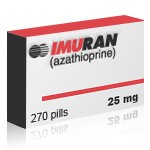Understanding and Managing Intestinal Inflammation


Intestinal inflammation is a common yet complex condition affecting millions worldwide. It can manifest in various ways, ranging from mild discomfort to severe digestive disorders. Understanding the causes, symptoms, and treatment options, including dietary choices and medications such as Imuran, is crucial in managing this condition effectively.
What Causes Inflammation in the Intestines?
Inflammation in the intestines is a response to irritation, infection, or an underlying autoimmune disorder. Several factors contribute to this condition, including bacterial or viral infections, food intolerances, chronic stress, and an imbalance in gut microbiota. Inflammatory bowel diseases (IBD), such as Crohn’s disease and ulcerative colitis, are chronic conditions where the immune system mistakenly attacks the intestinal lining, causing persistent inflammation. Additionally, lifestyle factors such as excessive alcohol consumption, smoking, and a diet high in processed foods and unhealthy fats can exacerbate inflammation. Certain medications, including nonsteroidal anti-inflammatory drugs (NSAIDs), may also play a role in aggravating intestinal irritation.
Environmental pollutants and toxins may also contribute to inflammation by disrupting gut microbiota and impairing immune function. Emerging research highlights the role of gut-brain interaction, suggesting that mental health disorders like anxiety and depression can influence gut inflammation. Understanding the interplay between these factors is essential for comprehensive treatment.
How to Get Rid of Inflammation in the Intestines?
Managing intestinal inflammation involves a combination of dietary modifications, medical treatment, and lifestyle changes. First and foremost, identifying and eliminating potential dietary triggers such as dairy, gluten, or processed foods can significantly reduce inflammation. A fiber-rich diet, consisting of fruits, vegetables, and whole grains, helps maintain gut health and supports beneficial bacteria.
Hydration plays a vital role, as water aids digestion and prevents constipation, which can further irritate the intestines. Additionally, regular physical activity promotes healthy digestion and reduces stress levels, which in turn helps manage inflammation. Stress management techniques, including meditation, yoga, and deep breathing exercises, can also be beneficial in reducing gut inflammation.
In cases where lifestyle and dietary changes are insufficient, medical intervention may be required. Doctors may prescribe anti-inflammatory medications, immunosuppressants, or biologic therapies to control symptoms and prevent flare-ups. Probiotics and prebiotics are often recommended to support gut microbiome balance and enhance digestive health. In severe cases, surgical intervention may be necessary, particularly for those suffering from complications of inflammatory bowel diseases.
Alternative therapies, such as acupuncture and herbal medicine, have gained attention for their potential to alleviate symptoms. Some studies suggest that curcumin supplements and omega-3 fatty acids can help modulate immune responses and reduce inflammation.
How Do I Know If My Gut Is Inflamed?
Recognizing intestinal inflammation early can lead to more effective treatment and symptom management. Common signs include abdominal pain, bloating, frequent diarrhea or constipation, and unexplained weight loss. Many individuals also experience fatigue, which results from the body’s immune response to inflammation. In more severe cases, symptoms such as bloody stools, persistent nausea, and fever may indicate a more serious underlying condition.
A healthcare provider may use various diagnostic tools to assess gut inflammation, including blood tests, stool tests, endoscopy, or colonoscopy. These tests help identify markers of inflammation, infections, and other potential causes of digestive distress. Early diagnosis allows for more precise treatment plans and better long-term outcomes.
Additionally, emerging diagnostic techniques such as microbiome analysis and inflammatory marker testing provide deeper insights into gut health, allowing for personalized treatment strategies tailored to an individual’s gut microbiota composition.
Foods That Reduce Intestinal Inflammation
Diet plays a critical role in managing intestinal inflammation. Certain foods have natural anti-inflammatory properties and can help soothe the digestive tract. Omega-3 fatty acids, found in fatty fish such as salmon and sardines, are known for their powerful anti-inflammatory effects. Fiber-rich foods, including leafy greens, berries, and whole grains, support healthy digestion and maintain a balanced gut microbiome.
Fermented foods such as yogurt, kefir, and sauerkraut contain probiotics that promote good gut bacteria and improve digestion. Turmeric, ginger, and green tea have been studied for their anti-inflammatory properties and can be incorporated into the diet to reduce symptoms. Additionally, healthy fats from sources like olive oil, avocados, and nuts help combat inflammation and provide essential nutrients for gut health.
On the other hand, it is essential to avoid processed foods, refined sugars, and artificial additives, which can aggravate intestinal irritation. Reducing alcohol and caffeine intake can also be beneficial in minimizing gut inflammation and promoting overall digestive well-being.
Recent research suggests that polyphenols found in dark chocolate, berries, and green tea may offer additional anti-inflammatory benefits. Including these foods in a balanced diet may help reduce symptoms and improve overall gut health.
The Role of Imuran in the Treatment of Intestinal Inflammation
Imuran (azathioprine) is an immunosuppressive medication commonly used in the treatment of inflammatory bowel diseases such as Crohn’s disease and ulcerative colitis. It works by suppressing the immune system’s overactive response, reducing inflammation in the intestines. This medication is particularly useful for individuals who do not respond well to conventional treatments such as corticosteroids or those who require long-term maintenance therapy to prevent disease flare-ups.
Although Imuran is effective in managing chronic intestinal inflammation, it is not without potential side effects. Patients may experience nausea, fatigue, increased susceptibility to infections, and, in rare cases, liver toxicity or bone marrow suppression. Regular monitoring through blood tests is essential to ensure the medication is well-tolerated and does not cause adverse effects.
Imuran is typically used as part of a comprehensive treatment plan that includes dietary modifications, lifestyle changes, and other medications as needed. Patients should work closely with their healthcare providers to determine the appropriate dosage and monitor their response to the treatment.
Conclusion
Intestinal inflammation is a condition that requires a multifaceted approach for effective management. Identifying and addressing potential triggers, incorporating anti-inflammatory foods, and making necessary lifestyle changes can significantly improve gut health. Medications such as Imuran provide essential support for individuals with chronic inflammatory conditions, ensuring long-term symptom control and improved quality of life. By adopting a proactive approach to gut health, individuals can minimize the impact of intestinal inflammation and enjoy a healthier, more comfortable life.
Ongoing research into gut health and inflammation continues to reveal new insights, highlighting the importance of a personalized approach to treatment. By staying informed and working with healthcare professionals, individuals can take charge of their digestive health and improve their overall well-being.
Medically Reviewed by Dr. Faride Ramos, MD
(Updated at Feb 23 / 2025)

